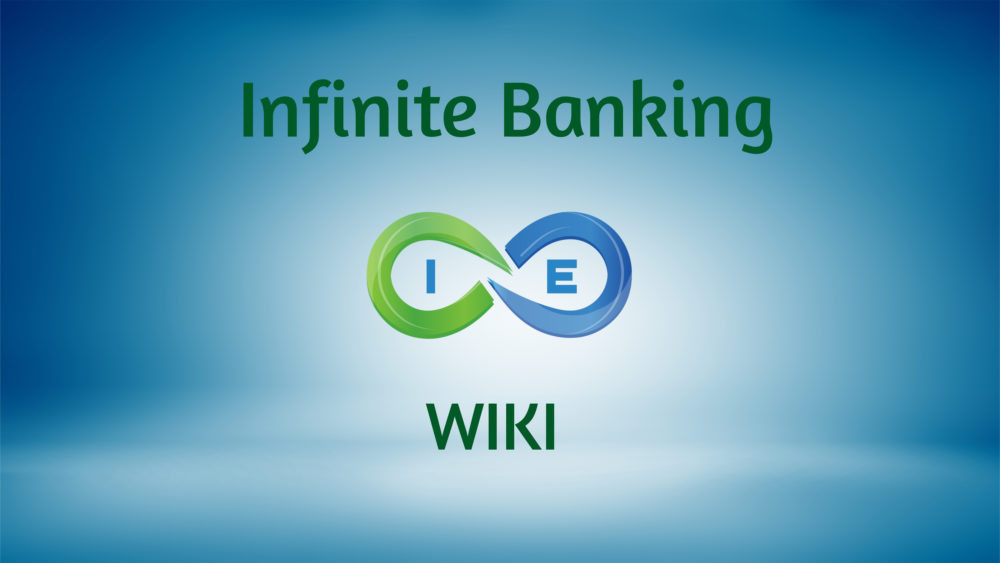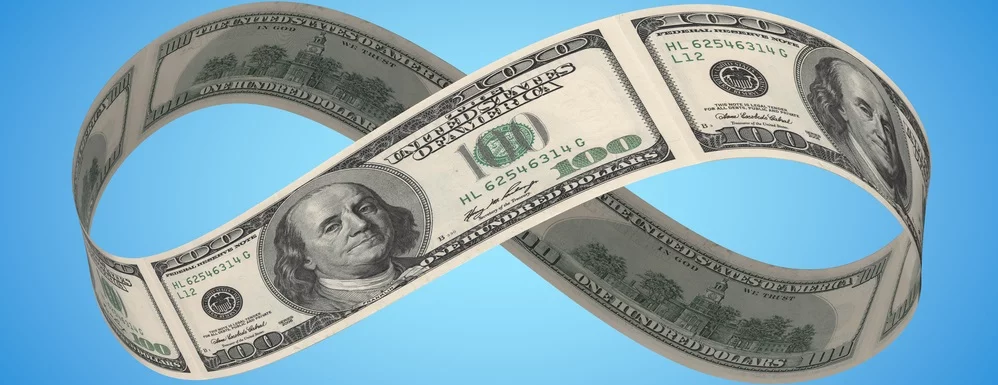All Categories
Featured
Table of Contents
Okay, to be fair you're actually "banking with an insurance policy business" rather than "financial on yourself", yet that idea is not as easy to sell. Why the term "infinite" banking? The concept is to have your cash operating in multiple places at once, instead of in a solitary place. It's a little bit like the idea of purchasing a residence with money, then obtaining versus your home and placing the cash to operate in one more investment.
Some individuals like to discuss the "rate of cash", which primarily indicates the exact same point. In truth, you are simply optimizing take advantage of, which functions, however, of training course, works both means. Honestly, all of these terms are scams, as you will see listed below. However that does not imply there is nothing beneficial to this concept once you surpass the marketing.
The entire life insurance coverage sector is tormented by extremely costly insurance policy, enormous commissions, unethical sales techniques, low rates of return, and poorly educated clients and salesmen. However if you wish to "Count on Yourself", you're mosting likely to need to fall to this industry and in fact get entire life insurance policy. There is no substitute.
The warranties fundamental in this item are crucial to its function. You can borrow versus most sorts of cash money value life insurance coverage, but you should not "bank" with them. As you buy an entire life insurance coverage plan to "financial institution" with, keep in mind that this is a completely separate section of your monetary strategy from the life insurance section.
Get a huge fat term life insurance coverage plan to do that. As you will see below, your "Infinite Financial" plan actually is not mosting likely to accurately offer this important monetary feature. One more trouble with the fact that IB/BOY/LEAP relies, at its core, on a whole life plan is that it can make buying a policy problematic for many of those curious about doing so.
Infinite Banking Concept Review
Harmful pastimes such as SCUBA diving, rock climbing, skydiving, or flying additionally do not mix well with life insurance policy items. That may function out great, since the factor of the plan is not the death advantage, however bear in mind that acquiring a policy on minor kids is extra expensive than it needs to be because they are normally underwritten at a "conventional" rate instead than a chosen one.

The majority of policies are structured to do either things. The majority of generally, plans are structured to make best use of the payment to the agent selling it. Cynical? Yes. It's the reality. The commission on an entire life insurance coverage policy is 50-110% of the initial year's costs. Sometimes plans are structured to optimize the survivor benefit for the costs paid.
The rate of return on the plan is really vital. One of the finest means to optimize that element is to get as much cash money as possible into the policy.
The ideal method to improve the price of return of a plan is to have a fairly little "base plan", and then placed even more money right into it with "paid-up additions". Rather than asking "Just how little can I place in to obtain a certain survivor benefit?" the question comes to be "Exactly how much can I lawfully took into the policy?" With even more money in the policy, there is even more money value left after the costs of the death benefit are paid.
A fringe benefit of a paid-up enhancement over a regular premium is that the compensation rate is reduced (like 3-4% rather than 50-110%) on paid-up enhancements than the base policy. The less you pay in payment, the greater your rate of return. The price of return on your cash worth is still going to be unfavorable for some time, like all cash money value insurance plan.
But it is not interest-free. It might cost as much as 8%. Many insurer just supply "direct acknowledgment" financings. With a direct acknowledgment loan, if you borrow out $50K, the dividend rate related to the cash money value each year only uses to the $150K left in the policy.
How To Set Up Infinite Banking
With a non-direct recognition funding, the business still pays the same dividend, whether you have actually "borrowed the cash out" (practically against) the policy or not. Crazy? Who recognizes?
The business do not have a resource of magic free money, so what they give up one location in the policy must be extracted from another area. If it is taken from a feature you care less about and place right into an attribute you care more around, that is a good thing for you.
There is one more essential feature, typically called "clean finances". While it is wonderful to still have dividends paid on money you have actually gotten of the policy, you still have to pay passion on that particular loan. If the dividend rate is 4% and the finance is charging 8%, you're not specifically coming out in advance.
With a wash funding, your loan rate of interest is the very same as the reward price on the plan. So while you are paying 5% passion on the finance, that rate of interest is totally offset by the 5% reward on the lending. In that regard, it acts just like you took out the money from a financial institution account.

5%-5% = 0%-0%. Same exact same. Thus, you are currently "financial on yourself." Without all three of these variables, this plan merely is not mosting likely to function extremely well for IB/BOY/LEAP. The greatest concern with IB/BOY/LEAP is the individuals pushing it. Almost all of them stand to make money from you acquiring right into this idea.
There are several insurance policy representatives chatting regarding IB/BOY/LEAP as a function of entire life who are not actually marketing policies with the needed attributes to do it! The problem is that those who know the principle best have a large problem of interest and usually blow up the advantages of the principle (and the underlying policy).
Be My Own Bank
You must contrast loaning against your plan to taking out money from your cost savings account. No money in money worth life insurance coverage. You can place the money in the financial institution, you can invest it, or you can buy an IB/BOY/LEAP policy.
You pay taxes on the rate of interest each year. You can conserve some even more cash and put it back in the banking account to start to make passion again.
When it comes time to acquire the boat, you market the investment and pay tax obligations on your lengthy term funding gains. You can save some more money and acquire some more investments.
The cash value not used to spend for insurance coverage and compensations grows over the years at the returns rate without tax obligation drag. It begins with unfavorable returns, but hopefully by year 5 or so has damaged even and is expanding at the dividend rate. When you most likely to purchase the watercraft, you borrow versus the policy tax-free.
Whole Life Banking
As you pay it back, the cash you repaid starts growing again at the returns rate. Those all job quite in a similar way and you can contrast the after-tax prices of return. The fourth alternative, however, functions really in a different way. You do not save any cash nor get any kind of type of financial investment for several years.
They run your credit history and give you a financing. You pay passion on the obtained money to the bank until the car loan is repaid. When it is paid off, you have an almost pointless boat and no money. As you can see, that is nothing like the initial three options.
Latest Posts
Infinite Bank Concept
Paradigm Life Infinite Banking
Nelson Nash Reviews